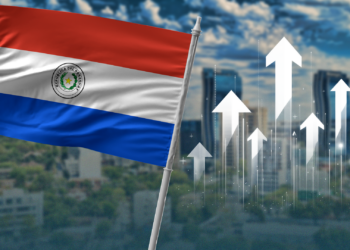This year marks the tenth anniversary of the Modern Slavery Act — a piece of landmark legislation that sought to clamp down on the exploitation of human beings through trafficking, forced labour, and servitude. During a recent debate, the Government marked the occasion by reaffirming its commitment to eradicating these abuses.
Yet behind these declarations lies a glaring contradiction. While ministers celebrate progress on tackling modern slavery, they continue to permit — and by omission, endorse — a practice that bears all the hallmarks of trafficking: international commercial surrogacy.
When asked in Parliament by Baroness Manzoor what steps the Government is taking to prevent British citizens from travelling abroad to pay women in poorer countries to carry and deliver children for them, the response from Women’s Health Minister Baroness Merron was unequivocal: “The Government has no plans to restrict international travel for surrogacy.” In other words, the UK sees no issue with its citizens participating in a global trade that commodifies both women and children.
This is not just a policy oversight. It is a moral failure.
International surrogacy, particularly when commercial in nature, is a transactional arrangement in which a child is the product and the woman’s body is the means of production. That may sound stark — but when money changes hands, contracts are signed, and babies are handed over at birth to commissioning adults, what else can we call it?
It is true that the surrogacy industry in the UK is still quite small. But it is growing. Annually between 400-500 new surrogate-incubated babies are being registered each year.
This practice raises grave concerns, not only about exploitation but also about safeguarding. There are documented cases of individuals with disturbing histories gaining access to children via surrogacy arrangements. Surrogacy Concern, a group that campaigns against the practice, has highlighted harrowing examples — including that of Jo Erik Brøyn, a Norwegian psychiatrist convicted of possessing vast quantities of child sexual abuse material, who obtained two Indian boys through surrogacy. Another well-known case involves Mark Newton and Peter Truong, who purchased a child through a Russian surrogate and subjected him to unimaginable abuse.
Surrogacy, especially in its commercial and international forms, is bad for women and bad for babies
These are not isolated horror stories — they are warning signs of an industry that too often lacks transparency, accountability, or even the most basic vetting procedures.
Countries such as France, Germany and recently Italy have recognised the inherent dangers and ethical failings of commercial surrogacy and banned the practice outright.
Meanwhile in the UK, we have a total fudge. Commercial surrogacy is banned, but international imports, as confirmed the Government’s recent answer, are not. In other words, the UK Government continues to tacitly support surrogacy. In effect, we outsource the exploitation we refuse to permit at home.
This contradiction is not only incoherent; it is indefensible.
The Law Commissions of England, Wales, and Scotland are now recommending legal reforms that would further entrench and normalise surrogacy. One of their key proposals is to make commissioning parents the legal parents of a child at birth — removing the current presumption that the birth mother is the legal parent until a parental order is granted. This shift would significantly weaken protections for both surrogate mothers and children.
The UK Government has not yet formally accepted these proposals, but its silence — and its ongoing failure to curtail international surrogacy — suggest it may be amenable to them.
In contrast, Alba MSP Ash Regan has taken a principled stand in the Scottish Parliament, calling attention to the health risks, exploitation, and ethical concerns surrounding surrogacy. She recently lodged a motion urging a national debate on whether Scotland should join the growing list of countries banning the practice. It’s a step in the right direction.
But what is missing in Westminster is leadership — particularly from the Conservative Party, which should be holding the Government to account for its inaction. Instead, both the Government and His Majesty’s Opposition have remained conspicuously silent.
Surrogacy is not simply a medical or legal issue — it is a profound ethical question about how we treat women’s bodies and children’s rights. The desire to be a parent is entirely understandable and often heart-rending when unmet. But that longing, however sincere, cannot justify turning people into commodities.
Renting a womb is wrong. Buying a baby is wrong. It is an indictment of our liberal culture that we even need to say this.
When former Conservative MP Miriam Cates said it was “not ethically acceptable” to “deliberately bring a child into the world, with the intention of taking them from their mother at birth”, it was met with fire and fury by the surrogacy industry. She pointed out that you’re not even allowed to take a puppy off its mother in the UK before it’s weaned, she was vilified by those with a vested interest in the surrogacy industry, but she wasn’t wrong.
Surrogacy, especially in its commercial and international forms, is bad for women and bad for babies. It enables wealthier individuals to use their money to bypass domestic legal safeguards, often at the expense of poorer, more vulnerable women overseas.
The UK must decide what kind of country it wants to be. If we are serious about ending human trafficking and exploitation, then our laws must reflect that — not only in spirit but in substance.
Ten years after the Modern Slavery Act, we should not be turning a blind eye to exploitation by another name.







